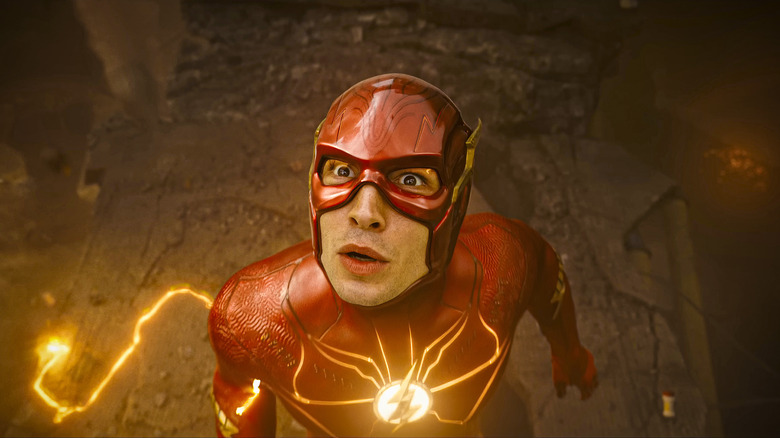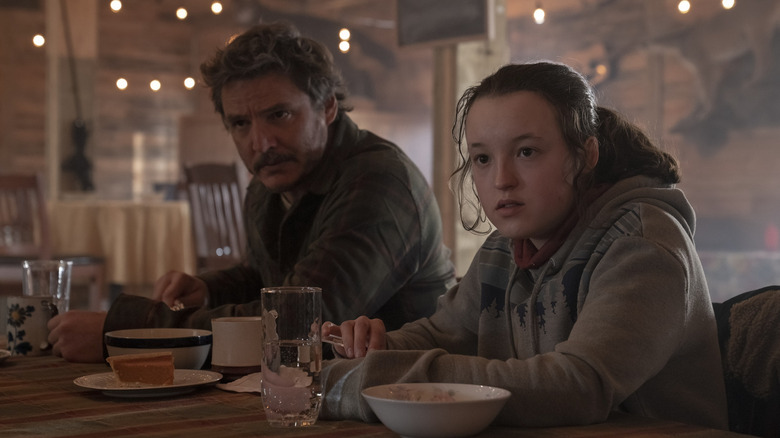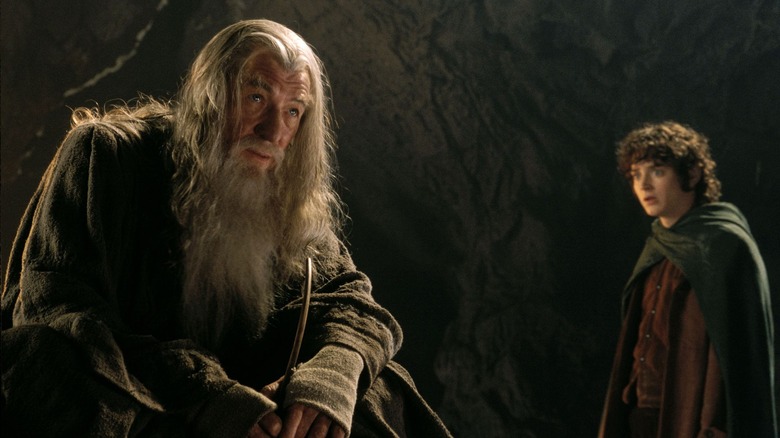Is The Worst Truly Over For Warner Bros. Discovery? David Zaslav Certainly Thinks So
Things have been more than a little tumultuous at Warner Bros. Discovery (WBD) following Discovery's acquisition of WarnerMedia last year. The combined company carries with it $49.5 billion in debt (down from $57 billion a year ago) and, as a result, has a challenging road ahead, particularly with the streaming landscape changing dramatically. That being the case, all eyes were on CEO David Zaslav as the company reported its fourth quarter and full year 2022 financial results recently. In short, WBD is still losing billions of dollars, but Zaslav seems confident the worst is behind them.
Warner Bros. Discovery recorded a $2.1 billion loss in the most recent quarter, and that was heavily bolstered by a $1.85 billion write down related to the WarnerMedia acquisition, as well as $1.2 billion in restructuring expenses. Plus, the company reported $11 billion in revenue for the quarter, representing a 9% decline compared to the same quarter last year. But they did increase cash flow and reported having $3.9 billion cash on hand. Overall, the numbers seem rough. Yet, in a statement, Zaslav painted a picture of a bright future:
"With the major restructuring decisions behind us, this year we are focused on building and growing our businesses for the future, and we're off to a great start. We're seeing strong momentum across the enterprise, including our exciting long-term plans for DC Studios, the historic success of our latest HBO series 'The Last of Us,' the significant financial and operating gains in DTC, and the record sales of our newest game 'Hogwarts Legacy.' And with our unparalleled portfolio of assets and IP, a growing roster of exceptional creative talent, and some of the buzziest storytelling in the industry, we believe we have repositioned our businesses to take full advantage of the many opportunities ahead."
The new streaming service is a huge focus
As for that restructuring, much of it has been ugly. More than $2 billion worth of movies and TV shows were axed as part of extreme cost-saving measures, including the "Batgirl" movie, which had already been completely filmed. Meanwhile, many shows and movies have been pulled off of HBO Max to save on royalties, with some of those shows moving to ad-supported streaming services like The Roku Channel and Tubi. Yet, if David Zaslav is to be believed, the worst of that restructuring is behind them, and they can now focus on a presumably brighter, less rocky future.
A big part of that future will, naturally, be streaming focused. Yes, some stuff is leaving HBO Max, but that's by design. Zaslav explained that much of what existed on the service was hardly being watched, and they felt that content could generate more revenue elsewhere. Hence, the deals with Roku and Tubi. But the bigger thing is the new combined streaming service that will bring HBO Max and Discovery+ under one roof. Zaslav revealed that there will be a press event for that new service on April 12. There, the future will finally be revealed to us. "Overall price value" of that combined service was touted, while also calling it a "significantly improved product." It all sounded very optimistic.
As for price? Who knows. HBO Max already raised its price recently and, at $15.99 per month for the ad-free plan, it's one of the most expensive on the market. For that reason, subscribers will have the option to keep Discovery+ as a standalone product. As Zaslav put it, "Our strategy is no sub left behind," while also adding that "Discovery+ is profitable." So, why not leave that alone rather than force everyone to pay more?
The future is very clearly franchise heavy
Rather importantly, revenue for WBD's TV networks fell 6% to roughly $5.5 billion. This includes Discovery, CNN, TNT, TBS, TLC, and Food Network. Ad sales decreased by 14% as well. Traditional TV is taking a hit, so streaming has to be a big part of the future. The emphasis is now on making that side of the business profitable with a "quality over quantity" approach. Their solution? Focus heavily on franchises. If not almost exclusively on franchises, it feels like.
To that end, the splashiest announcement during the call came when David Zaslav revealed that Warner Bros. and New Line have closed a deal to make new "Lord of the Rings" movies. Between the "Lord of the Rings" and "Hobbit" trilogies, you're talking about more than $5.8 billion in box office. So yeah, that makes sense. Zaslav also spoke highly of James Gunn and Peter Safran's plans for the DC Universe, including "Superman: Legacy," which will be the first solo film centered on the DC hero in over a decade.
"We have an overwhelming advantage in the marketplace with the IP that we own," Zaslave said. He also pointed to the massive sales numbers for the new "Harry Potter" game "Hogwarts Legacy," which sold more than 12 million copies and generated $850 million in sales in just over two weeks. Needless to say, regardless of J.K. Rowling's ongoing controversies, that series is alive and well. "We haven't done a new 'Harry Potter' movie in over a decade" Zaslav added, perhaps hinting that a new film is something they will like to do in the not-too-distant future. Clearly, he didn't think highly of the "Fantastic Beasts" films.
The message was clear: franchises are the key to success, Warner Bros. has big franchises, and they are going to lean into that harder than ever before, for better or worse.
Is the worst truly over?
The future of Warner Bros. Discovery is becoming clearer. For one, they are going to be very focused on theatrical movies that will, eventually, make their way to HBO Max. David Zaslav reiterated his feeling many times that a theatrical release provides more value and buzz for a given movie, adding at one point that "direct-to-streaming movies were providing really no value to us." That's why "Magic Mike's Last Dance" pivoted to a theatrical release and why "Blue Beetle" will hit theaters later this year despite being conceived as a streaming release. It's also why "The Flash," despite all the controversy, is still a big summer blockbuster.
Beyond that, it's going to be a franchise-heavy focus with a hand in every link in the chain. WBD will have a major streaming service to be announced in April, along with a smaller offering in Discovery+. They will have an ad-supported streaming business to help generate further revenue for those shows and movies in other ways. They will go even harder on video games, tied heavily to that franchise-first strategy. And yes, they will double down on theatrical as the box office continues to recover. Put plainly, they're a large multi-media company with a toe in every corner of the pond.
But still the question lingers: is David Zaslav right? Will this strategy work as the media landscape continues to shift? Is the worst of the losses and moves worthy of very unflattering headlines day in, day out? For now, it's tough to say, but there is confidence and a clear strategy. Whether or not it's a winning strategy, we shall see.



